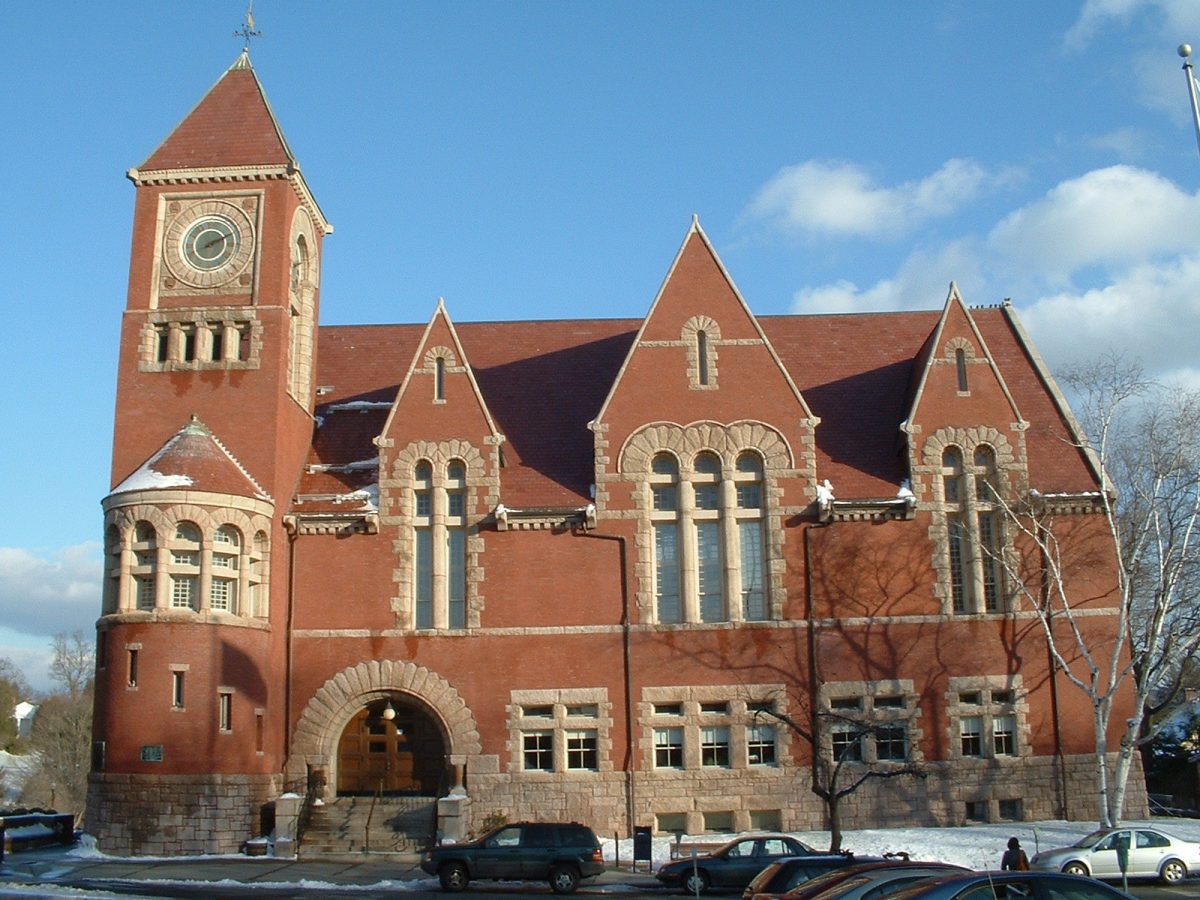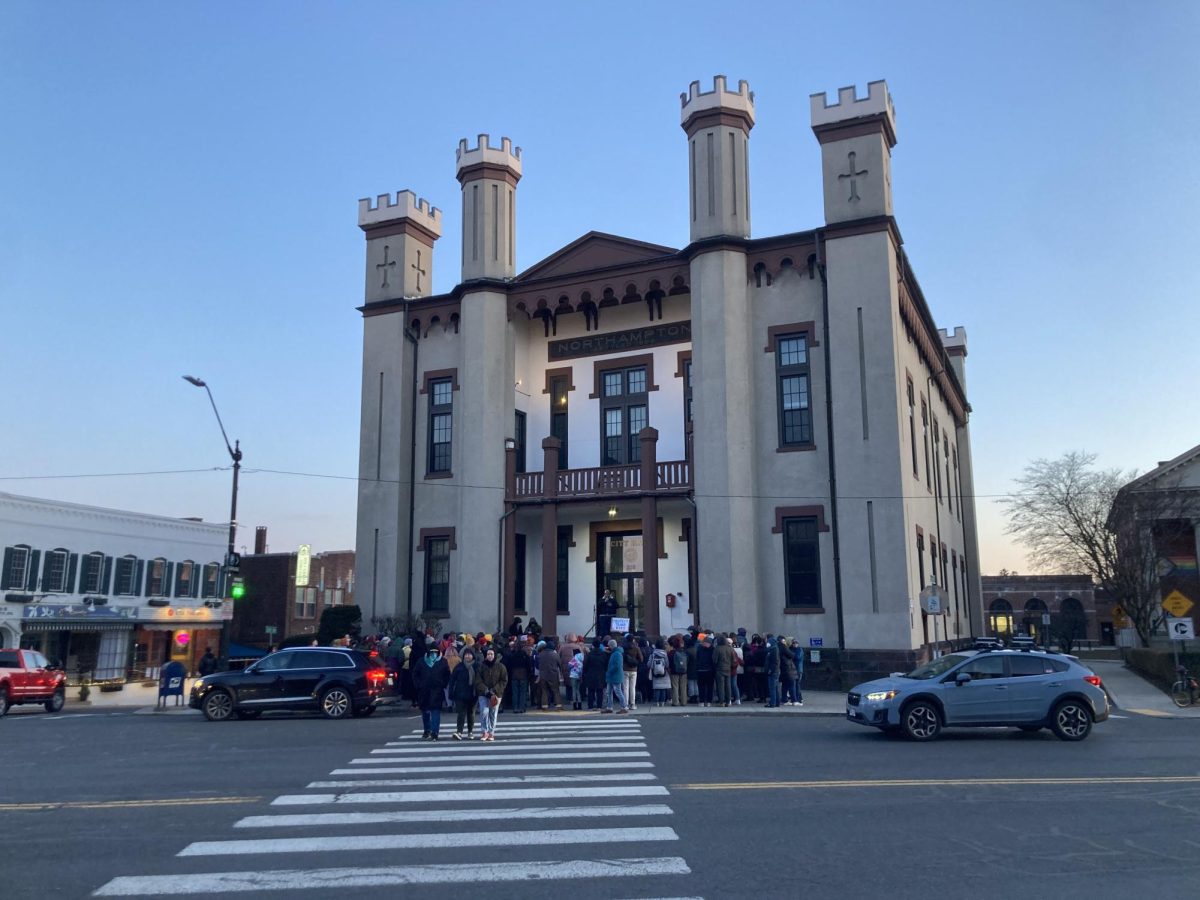A Northampton-based organization is proving itself instrumental in decoding the federal budget. The National Priorities Project (NPP) “makes complex federal budget information transparent and accessible so people can prioritize and influence how their tax dollars are spent,” according to its website.
Jo Comerford, executive director of the NPP since 2008, said the group hopes to “help people feel like the federal budget is their process and responsibility,” and to make “often opaque documents more transparent.”
The organization utilizes the Web in providing citizens tools to break down the complexities of the FY2011 budget. Despite the disconnect some citizens may feel with the inner-workings of their government, the group believes federal spending affects all Americans. The budget is not meant to be constructed behind closed doors, but well within the public eye, the NPP contends. The NPP hopes that by using its analytic metrics, Americans can become more informed and engaged with federal spending in order to understand it and affect its processes.
The differences between corporate and individual taxes are “not wisely understood,” said Comerford.
“Most folks think that government spending is run amok, but it must be looked at from a revenue perspective,” she said. “The impact of tax cuts on the wealthy will cost us $42 billion in revenue.”
Recent cuts to corporate taxes are the result of policy, Comerford said, with most of the strain of funding the government placed on individuals.
“If we could channel more voices, we could see that the people want a federal government that cares more about its people, and budget proposals that reflect the true meaning of security.”
The group has identified what it sees as several other disparities between where some think federal funds go and where taxpayer dollars actually end up.
“People have no real idea about how much the U.S. spends on the military,” Comerford stated, adding that the budget is projected to spend 58 percent of its discretionary spending, or $728 billion, on the armed forces.
Instead of being directed towards social services like housing or education, the “extraordinary chunk of money” is funneled into the defense budget, so much that the U.S. accounts for “43 percent of military spending globally,” Comerford said.
Comerford said she believes that as governments across the country crunch their reduced budgets, citizens are becoming increasingly aware of how federal funds are spent, citing the Wisconsin protests for and against reductions in pension and benefits for public sector employees, in particular.
“Wisconsin is a conversation about budget priorities, and a powerful implication of a growing awareness of budget decisions having local impact,” she said. The NPP “can’t keep up with demand, which speaks to a growing awareness of the budget and labor crises.”
“The people want voices,” Comerford continued.
Some of the tools on the organization’s website include illustrative charts and graphs, showing trends in both the present budget and those of years past. One particularly informative page is the “Federal Budget 101” page, which outlines the governmental steps taken to complete the budget as well as outlining basic information on spending.
The NPP figures predict that federal spending in the 2011 fiscal year, beginning Oct. 1, will account for more than 25 percent of the GDP, projected to be around $3.8 trillion. A third of this is to be spent on social programs, another 20 percent to be invested in national defense, and just 3 percent will be devoted to various education programs and funds. During the same time, the government is expected to collect $2.6 trillion in revenues, most of which will stem from individual income taxes and social insurance receipts. Revenues from corporate taxes have declined over the past 50 years from 23 percent to just 7 percent, while individual income taxes have stayed relatively stable, according to the NPP’s figures.
Though the income tax is progressive, in that those that make more pay a higher percentage of their income, revenue collected by social security is regressive, allowing the upper income brackets to retain higher percentages of their income than less wealthy individuals.
The NPP formed during the Reagan era, when a founder and a member of the University of Massachusetts faculty noted that Massachusetts first congressional district was losing money and approached then Rep. Silvio Conte, who apparently had not thought about the local impact of federal spending. The NPP was founded thereafter to attempt to “decode” the federal budget and help citizens become more informed on the processes of their federal government. To find out more about the National Priorities Project and for opportunities to get involved, the group’s website can be accessed at nationalpriorities.org.
Thomas Barnes can be reached at [email protected].






